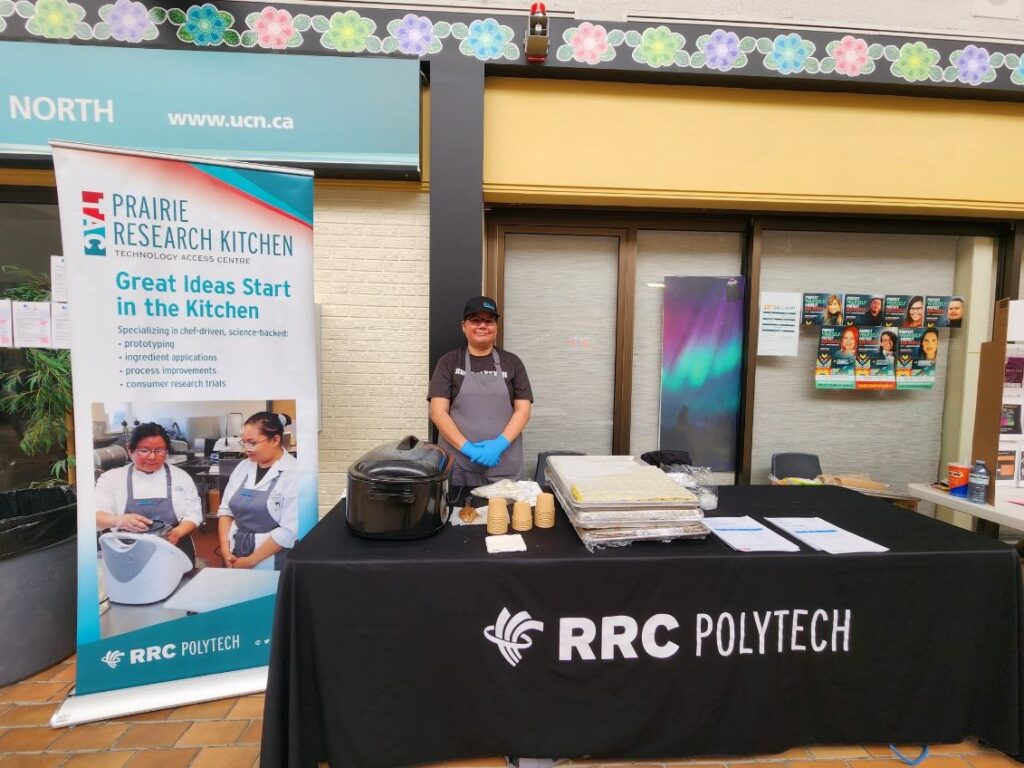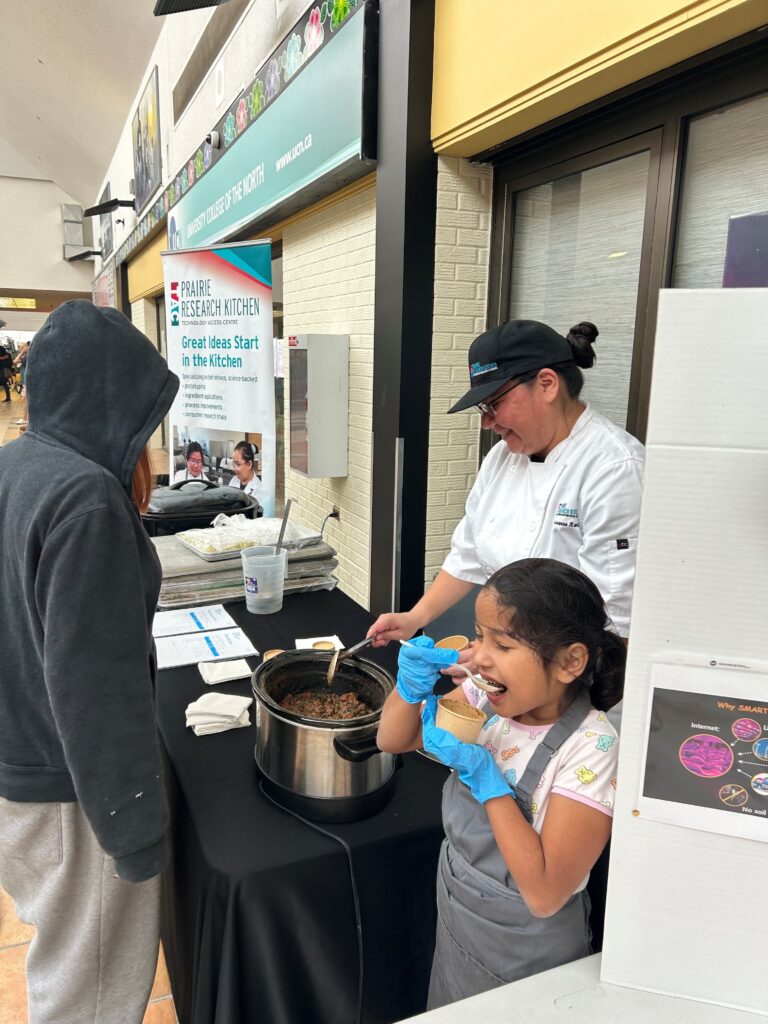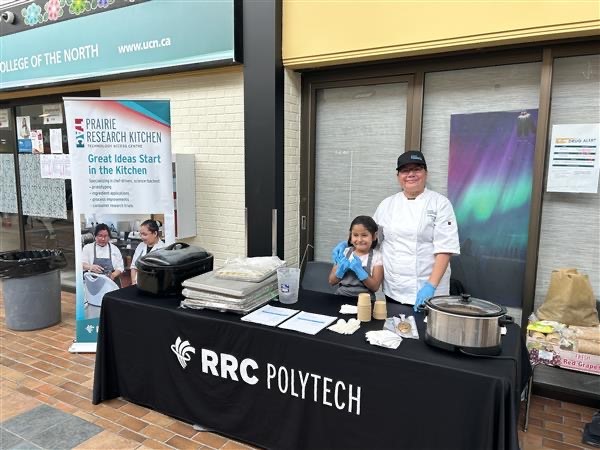PRK creates recipes featuring superfood in OCN
Five years ago, RRC Polytech’s Prairie Research Kitchen established a partnership with Opaskwayak Cree Nation (OCN) to create a product incorporating kale into sausages – a popular food product in the community.
More recently, PRK was called upon once again to find even more delicious dishes incorporating kale to support research with the University of Manitoba related to consumption of the leafy green and the numerous health benefits. One example the culinary team and students created was a non-spicy chili and cornbread product featuring kale, while incorporating sage as a familiar and subtle enhancement.
This is the beginning of an ongoing tri-partnership collaboration with PRK, OCN and U of M using technology to grow, culinary research to develop new projects, and the science team to analyze the impacts.
Scroll this article for recipes.

About RRC Polytech’s Prairie Research Kitchen:
RRC Polytech’s Prairie Research Kitchen supports industry growth by leveraging College infrastructure and instructor expertise into applied research and training. The research team’s unique blend of culinary skills and food science knowledge drives creative new applications of Canadian food products.
In 2019, Prairie Research Kitchen received a Technology Access Centre (TAC) grant from NSERC, providing $1.75 million over five years. This is RRC Polytech’s third Technology Access Centre, joining the existing Building Efficiency Technology Access Centre (BETAC) and the Technology Access Centre for Aerospace and Manufacturing (TACAM).
Recipes
Kale Cornbread Muffins
Yield: 18 Muffins
Contains: Wheat/Gluten, Eggs, Milk
| Ingredients | Quantity (grams) | Quantity (volumetric) |
| All-Purpose Flour Yellow Cornmeal Sugar, granulated Baking Powder Salt Sage, rubbed Eggs Honey Milk, whole Butter, unsalted Kale, puree Kale, chopped | 192 128 82.8 14.5 3.7 0.7 100 (2) 38 174.3 115 40 10 | 1 ¼ cups ¾ cup ¼ cup + 2 tbsp 1 tbsp 1 tsp ¾ tsp 2 eggs 2 tbsp ¾ cup ½ cup 2 tbsp 3 ½ tbsp |
Method:
- Preheat the oven to 350F (177C).
- In a large bowl, sift and mix the flour, cornmeal, sugar, baking powder, salt, and sage.
- In a medium bowl, whisk together the eggs. Add in the milk, kale puree, and the honey and whisk until combined.
- Melt the butter. Add the milk mixture and melted butter to the dry ingredients.
- Whisk until all the dry ingredients have barely disappeared.
- Add in the chopped kale and fold using a spatula. Be careful to avoid overmixing.
- Scoop into lined muffin tins, filling about ¾ of the way with batter.
- Bake for about 15-20 minutes, or until lightly browned on the tops.
- Let cool for 3 minutes before removing from the hot pan and onto a different cool surface.
- Let cool slightly and serve when still warm.
- Other instructions: Best served when warm to maintain soft and moist crumb
Chili with Kale
Yield: 4 servings
| Ingredients | Quantity (grams) | Quantity (volumetric) |
| Beef, ground Onion, diced Black beans, drained Tomatoes, canned Water, tap Brown sugar Salt, kosher Cumin, ground Chili powder Garlic powder Pepper, ground Kale, chopped | 454 100 454 300 150 50 15 10 7 5 1 200 | 2 cups ¼ cup 2 cups 1 ½ cup ¾ cup 2 tbsp 1 tbsp 2 tsp 1 tsp 1 tsp ½ tsp 1 cup |
Method:
- In a large soup pot, cook ground beef until browned. Drain off excess fat, reserving 1 tablespoon.
- Add in onions and cook until translucent.
- Add in beans, tomatoes, water, and all seasonings. Mix well.
- Simmer chili for 10 minutes.
- Take off heat and add in fresh chopped kale, mix to incorporate.


